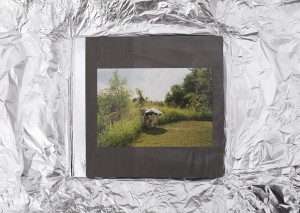 Last week I received photographer Thilde Jensen’s long awaited The Canaries book in the mail. After several years traveling across country to document the lives of those living with severe environmental illness, fundraising for the book project, printing her photographs, and all the other details required to bring a photography book to press, the book is finally ready for purchase. Congratulations, Thilde – what a huge accomplishment, both on a personal level and for our community!!
Last week I received photographer Thilde Jensen’s long awaited The Canaries book in the mail. After several years traveling across country to document the lives of those living with severe environmental illness, fundraising for the book project, printing her photographs, and all the other details required to bring a photography book to press, the book is finally ready for purchase. Congratulations, Thilde – what a huge accomplishment, both on a personal level and for our community!!
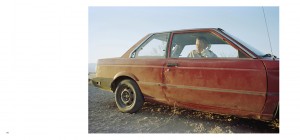 As a former fine art portrait photographer myself, I was extremely impressed by the aesthetic choices Jensen made in the printing and layout of the book, as well as the sheer fortitude of spirit it must have taken her to complete this project. This is a work of art that will be taken seriously in the art world (in fact, Thilde tells me that The Museum of Modern Art purchased a copy of The Canaries just last week!).
As a former fine art portrait photographer myself, I was extremely impressed by the aesthetic choices Jensen made in the printing and layout of the book, as well as the sheer fortitude of spirit it must have taken her to complete this project. This is a work of art that will be taken seriously in the art world (in fact, Thilde tells me that The Museum of Modern Art purchased a copy of The Canaries just last week!).
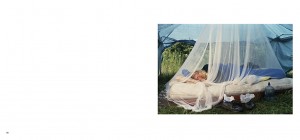 Jensen traveled across country twice to catalog the lives of those living on the edge of modern civilization – people like me who were chemically injured and no longer tolerated the world we lived in. Forced to strip ourselves of our material possessions and worldly connections, we found pockets of safety wherever we could – in the desert, in forests, in old trailers. I met Thilde when she came to Snowflake, Arizona, to photograph members of the MCS community there. She spent a day with me and my then boyfriend, listening to our stories and photographing slices of our life together.
Jensen traveled across country twice to catalog the lives of those living on the edge of modern civilization – people like me who were chemically injured and no longer tolerated the world we lived in. Forced to strip ourselves of our material possessions and worldly connections, we found pockets of safety wherever we could – in the desert, in forests, in old trailers. I met Thilde when she came to Snowflake, Arizona, to photograph members of the MCS community there. She spent a day with me and my then boyfriend, listening to our stories and photographing slices of our life together.
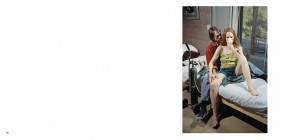 I’ve often wondered how Thilde would tell the EI story. What text would accompany her images? How would she convey our dire circumstances while honoring the poetry in our lives? My questions were answered as I turned the pages of her book. There are only a few areas of text – written by the subjects of the book themselves. No long political or historical monologues. Thilde has let her images do the storytelling – portraits of those whose lives have been derailed by chemical injury, interspersed with barren landscapes that tell the story of a chemically and electromagnetically addicted society that does not care much for those who cannot participate.
I’ve often wondered how Thilde would tell the EI story. What text would accompany her images? How would she convey our dire circumstances while honoring the poetry in our lives? My questions were answered as I turned the pages of her book. There are only a few areas of text – written by the subjects of the book themselves. No long political or historical monologues. Thilde has let her images do the storytelling – portraits of those whose lives have been derailed by chemical injury, interspersed with barren landscapes that tell the story of a chemically and electromagnetically addicted society that does not care much for those who cannot participate.
The book is hardbound, 156 pages with 71 images and 4 inserts. It was printed by LENA publications in 2013, in an edition of 1,500. The book comes hand-wrapped in aluminum foil with a handwritten label and costs $65. If you are chemically sensitive, be aware that as a newly printed book of full color photographic images, it has a strong ink smell and does need to offgas for a while before viewing.
The official book description:
In 2003 a sudden development of severe Environmental Illness forced Thilde Jensen to leave her life in New York City. The ensuing years were a lesson in basic survival.
Retreating to the woods for sanctuary, Jensen would have to wear a respirator whenever she returned to civilization. To her surprise, an otherwise invisible subculture of people who shared this isolated existence began to emerge.
She later traveled the desert of the American Southwest, where many with Environmental Illness live as refugees from a chemical and electrical world they can no longer inhabit.
The Canaries is an intimate journey through a hypersensitive dimension of reality, where old cars, aluminum foil, masks and home-made phones become key necessities for survival. The book is an authentic photographic documentation of life on the edge of modern civilization, but reads almost as fiction set in the borderland between dream and nightmare.
To purchase the book, click here: http://thildejensen.com/buy.html






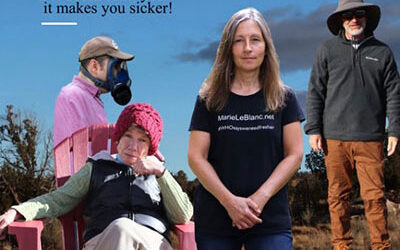
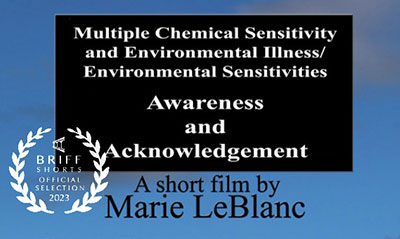

Great rreview Julie! The book and photographs look fascinating.
Nice job Julie. I agree with all that you have written about “The Canaries”, but you are able to better put it into words.
I think the world will have to address these invisible illness’ and you have been a big part of creating that awareness.
https://vimeo.com/81817409
Thank you T-Can and Denny!